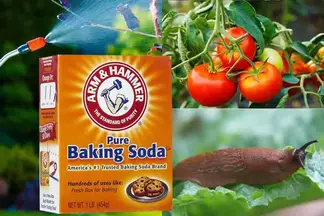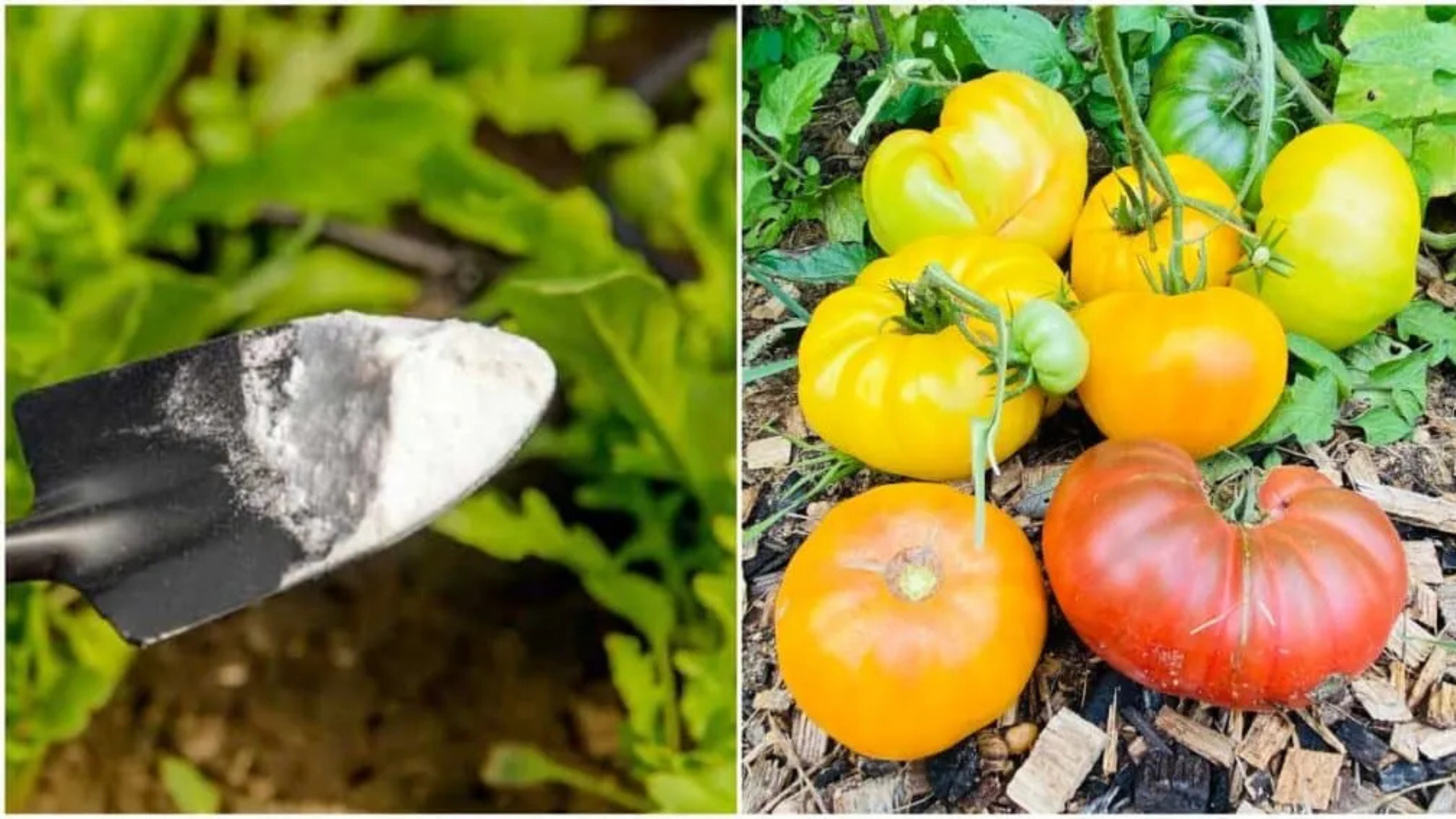Baking soda, a humble ingredient that most of us have in our kitchens, is one of the most versatile and cost-effective tools you can use in your garden. Not only does it offer natural, eco-friendly solutions to common gardening problems, but it’s also inexpensive and easy to use. Whether you’re looking to improve plant health, control pests, or enhance soil, baking soda can do it all. Here’s a look at 10 clever ways to incorporate this household staple into your gardening routine.
1. Natural Fungicide for Plants
Fungal diseases like powdery mildew and black spot can damage your plants, but baking soda can help protect them. It works as a natural fungicide, killing off harmful fungi without the use of harsh chemicals. To create your own solution, simply mix one tablespoon of baking soda with a gallon of water and a few drops of liquid soap. Spray the mixture on the affected plants every 1-2 weeks, or as needed, to prevent the spread of these pesky infections.
If you have a garden with a history of fungal problems, this is a great way to reduce your reliance on chemical treatments.
2. Weed Control
If you’re looking for a natural, chemical-free way to control weeds, baking soda is your friend. Simply sprinkle it directly onto weeds in your garden. The baking soda disrupts the cell walls of the weeds, causing them to wither and die over time. Be careful not to let the baking soda touch desirable plants, as it can affect their growth too. This method is particularly useful for those hard-to-reach weeds that pop up in cracks between paving stones or in tight garden beds.
3. Pest Deterrent
Garden pests like aphids, cabbage worms, and other common insects can quickly destroy your plants. Baking soda can help keep these pests at bay. To make your own natural pest repellent, mix equal parts of baking soda and flour. Dust the mixture on the affected plants, especially those vulnerable to pests. The baking soda helps to repel insects, while the flour acts as a barrier, preventing pests from getting to your plants.
This solution is safe for your plants and the environment, making it a great option for organic gardeners.
4. Soil pH Amendment
Does your soil feel too acidic? Adding baking soda can help neutralize the pH level and create a more balanced environment for your plants to thrive. Baking soda works as a natural soil amendment, but it’s important to test your soil’s pH first to make sure this is the right solution for your garden. Simply sprinkle a small amount of baking soda over your soil and work it in gently. This is especially beneficial for plants that prefer a more neutral soil pH.
5. Tomato Sweetener

Want to grow sweeter tomatoes? Baking soda can help! By altering the acidity of the soil, it enhances the natural sweetness of your tomatoes. Sprinkle a small amount of baking soda around the base of your tomato plants. This simple step can make a big difference in the flavor of your homegrown tomatoes, especially if you have acidic soil.
Try this method and taste the difference—it’s an easy and effective way to boost the flavor of your harvest!
6. Compost Enhancer
A thriving compost pile requires the right conditions to break down organic matter efficiently. Baking soda can help accelerate the decomposition process. When added to your compost pile, it creates an alkaline environment that encourages the growth of beneficial microorganisms. These microorganisms are essential for turning your scraps into nutrient-rich compost. Add a small amount of baking soda to your compost every few weeks to speed up the process and ensure that your compost is breaking down at a healthy rate.
7. Odor Absorber for Garden Areas
If you’ve noticed unpleasant odors in your garden—especially around your compost bin or after fertilizing—baking soda can help neutralize them. Simply sprinkle a little baking soda on areas where the smell is most noticeable. It will absorb the odors, leaving your garden smelling fresh and clean. This simple step can make a big difference, especially if you’re gardening in a small space or near your home.
8. Tool Cleaner
After a long day of gardening, your tools can get caked with dirt, sap, or even rust. Baking soda is a great cleaner for these tough jobs. Mix baking soda with a little water to create a paste, then scrub your tools with it. The mild abrasiveness of the baking soda will help lift dirt and grime, while its natural cleaning properties can also help remove rust. This keeps your tools in tip-top shape and ready for the next gardening session.
9. Seed Germination Aid
Some seeds, like those of hard-coated plants, require a process known as scarification to help them germinate. Baking soda can assist in this process by softening the seed coat. To enhance germination, soak your seeds in a mixture of water and baking soda overnight before planting. This simple treatment can make a big difference in helping your seeds sprout and grow, leading to healthier, more robust plants.
10. Ant Repellent
Ants can be a real nuisance in the garden, especially when they invade your plants. Baking soda is an effective ant deterrent. Sprinkle it around your plants or along ant trails to disrupt their scent trails. Ants rely on these scent trails to find food and water, so disrupting their path can send them elsewhere. This natural method is safe and effective for keeping ants away without using harmful chemicals.
Conclusion: A Gardener’s Secret Weapon
Baking soda is not just for baking—it’s a true multitasker in the garden! From helping control fungal diseases and pests to enhancing soil conditions and speeding up composting, this inexpensive and eco-friendly ingredient has a wide range of uses. Whether you’re a seasoned gardener or just starting, incorporating baking soda into your routine is an easy and effective way to create a healthier, more productive garden.
Embrace the power of baking soda and discover how it can transform your gardening experience. With its versatility and low cost, this common pantry item is truly a gardener’s best friend!


https://t.me/iGaming_live/4872